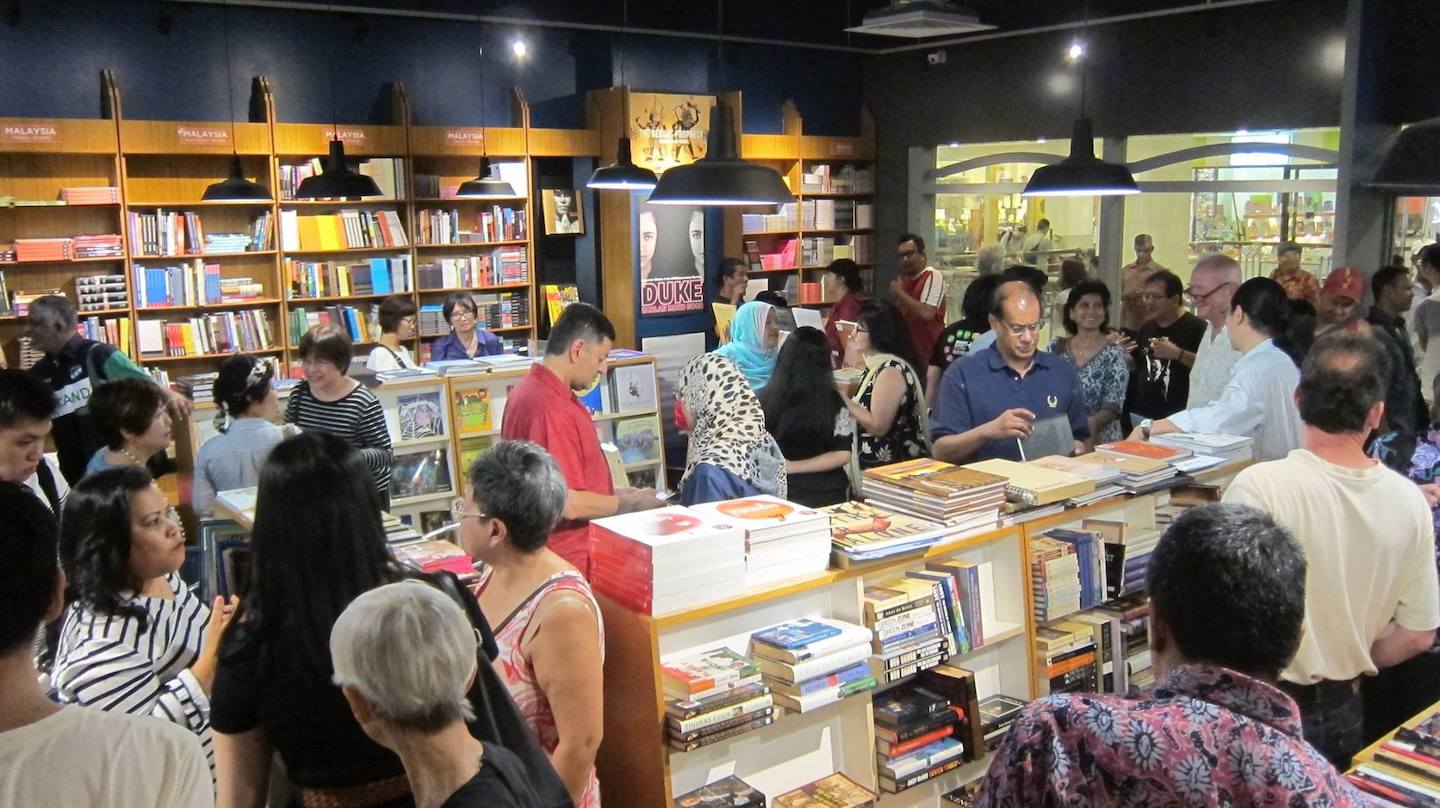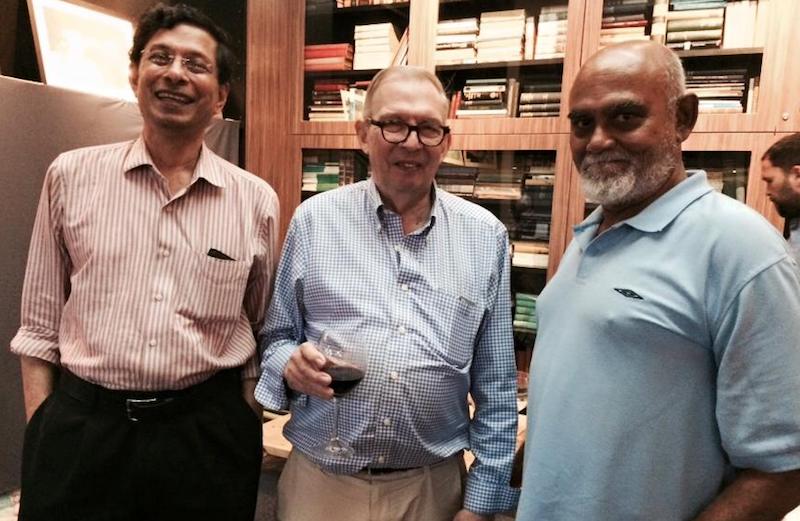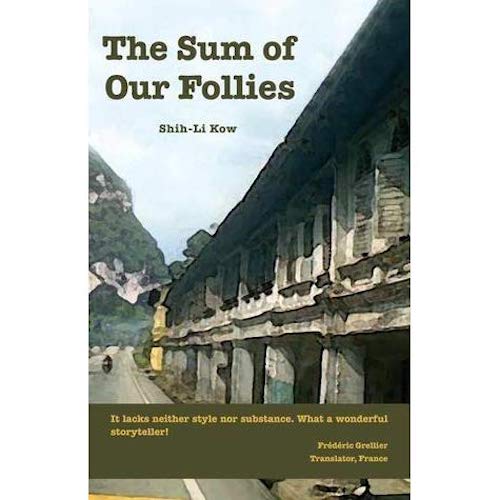
The independent bookstore has been around for 20 years (Photo: Silverfish)
Stepping into Silverfish Books in Bangsar Village II, one immediately sees the floor to ceiling rows of shelves marked “Malaysia”, each further compartmentalised by genre. The independent bookstore has always walked its own path since founder Raman Krishnan first conceived the idea of opening a bookshop that catered for his own reading preferences.
Over the last 19 years, Silverfish has also earned a well-deserved reputation as a champion of Malaysian authors and local literature. In its 20th year this year, Raman has seen the rise and subsequent fall of the mega-bookstore trend, even as he evolved Silverfish into a reputable publisher in its own right.
Yet, it could have all ended the first year the shop opened its doors. The former engineer recalls, “Immediately after I opened, the mega bookstore madness arrived in Malaysia. They were literally dumping books here, and there was just complete dominance. We were flooded with Anglo-American and UK books. So I had to be defensive and move away from selling the same books.”
That made him even more determined to promote Malaysian books, particularly in English, of which there were hardly any in the bigger bookstores. “You could say I had a rebellious streak. I said, ‘I’m going to put Malaysian books front and centre’,” he says.
Soon, an encounter led him to realise that he could not just be a bystander in selling books and not be a player.
“A Japanese professor visited me. He said, ‘Okay Raman, show me your Malaysian books section’. When I did, I was so embarrassed. It did not even fill one shelf. And I had tried to spread it out to occupy more space. At that point I thought, ‘This is absurd’,” relates Raman.

The publisher has since printed some 100 books, also launching the well-known annual New Writing Series of short stories in 2006, which ran for seven years. A compilation book of short stories submitted by the public, Raman said he decided to stop running it a few years ago.
His reason reveals the challenges that come with pioneering work. “If I am honest, it started to feel a bit futile. I had wanted to use the project to unearth writing talent that could go on to write full-length works. But very few were willing, or able, to translate their writing into a stronger commitment beyond a one-off short story. We also found it increasingly hard to find quality writing as the years went by.”
Still, Silverfish’s work in publishing local English authors — one of the few in the earlier years — has paved the way for the mushrooming of various independent publishers, some of whom were former collaborators. The few authors who went on to publish original works and have writing careers also undoubtedly made it worthwhile.
On display in Silverfish during our visit was a French translation of Kow Shih-li’s new book, Sum of Our Follies, which takes a proud centre spot. The author, who started her writing career with the New Writing Series, has gone one to have her collection of short stories, Ripples and Other Stories, shortlisted for a 2009 Frank O’Connor International Short Story Award.

Now wiser than the enthusiastic young publisher who declared, “There is absolutely no reason why a living Malaysian writer cannot be world class”, Raman still believes this with equal conviction today, even as he navigates Silverfish through the ever-changing publishing landscape.
“The book industry is completely different from what it was 20 years ago,” he says honestly. The shrinking number of bookstores and a more localised market means an increased difficulty in marketing and distributing books. This is compounded by what he calls the “mirage” of an ecosystem in book marketing globally.
“Everybody wants to be a million-seller in books … so publishing houses need to bank on finding another writer who can sell one million copies. So we keep going like this, with established names going in cycles. I am sorry to have to use the expression, it doesn’t sound nice, but you have to keep milking the cow,” says Raman, who views it as a positive thing for independent publishers like himself, as it allows him to build his own niche.
One impact the global trend has had is that Raman now tries to encourage local authors who come to him to self-publish, with his help.
“Rather than me marketing to strangers, they can leverage their own social network. It is a risk, but they also keep the profit, and they can sell the book anywhere they like. I support them by professionally packaging it for them, with the cover design, page layouts and printing services at a very affordable rate, so they can sell at more competitive prices. I also sell their books in-store. It is more of a win-win situation,” he says.
This has given him room to turn his attention to a passion project — a Malaysian Classics book series. The few already published include The Epic of Bidasari, Merong Mahawangsa and the Sejarah Melayu, among others, and they feature illustrations by local artists. Eventually, Raman says he would like to rewrite rather than just print existing translations, with the hope of producing world-class books that Malaysians and foreigners alike can enjoy.
“As a country, we seem to have completely forgotten our stories. Every civilisation has its stories, yet ours have been taken over by Snow White, a singing teapot and other such fairy tales. When I published Bidasari, nobody had heard of it. Only one customer told me they had. There are literally hundreds of stories that have been wiped from our memories,” Raman says.
This article first appeared on Aug 27, 2018 in The Edge Malaysia.


